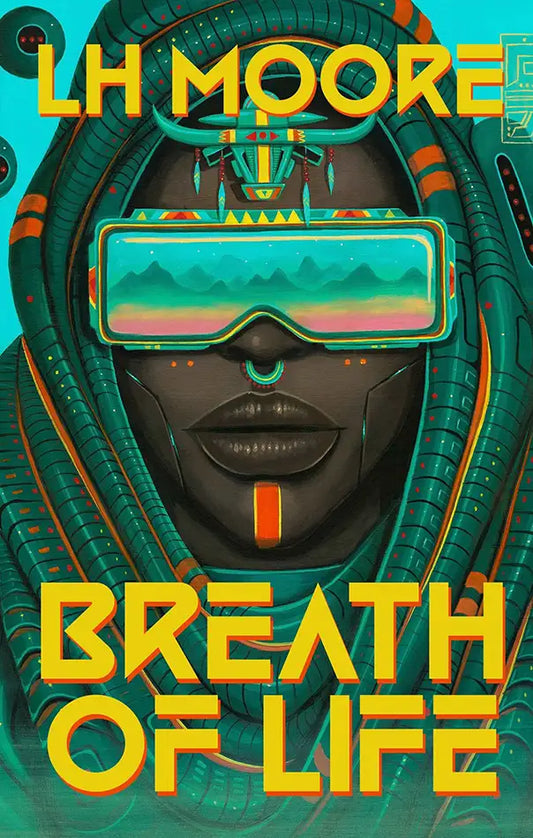
It’s not easy being a modern fan. We’re battling decades of institutionalized sexism, racism, and imperialism. We’re working on it. We may still be struggling with all of the —isms but we’re clawing our way toward second wave fandom, particularly when it comes to female fans sharing the dais. We recognize that women really do game, read comics and geek out over all the things guys geek out over. But even in this enlightened age, the gendered term “fangirl” has become a casual slur, used with impunity to mock and ridicule a certain type of fan.
Google “fangirl” right now; chances are, your first hit is the charming Urban Dictionary definition:
A rabid breed of human female who is obsessed with either a fictional character or an actor. Similar to the breed of fanboy. Fangirls congregate at anime conventions and livejournal. Have been known to glomp, grope, and tackle when encountering said obsessions.
Hugh Jackman: ‘ello.
Fangirl: SQUEEEEEE! *immediately attaches to Jackman’s leg*
Jackman: Security!
Even enlightened fans — who would never dare “fake geek girl” a woman — use the term with barely concealed contempt. Fangirls are just the shallow adolescents who glomp onto the hottest actor du jour and spend all their time posting gifs on Tumblr, right? They’ve already proven they’re not one of us, what with all the squealing and obsession with hair and pecs and abs.
When Peter Capaldi was recently announced as the 12th Doctor, replacing Matt Smith, Doctor Who fandom brought this point home in a particularly virulent way. Capaldi, 54, is the oldest actor to play the role since William Hartnell in 1963. Matt Smith, by comparison, is retiring at the tender age of 30. Within minutes of the announcement, Twitter and Facebook were filled with gleeful declarations of how an “old” Doctor will finally drive away the fangirls, and how they couldn’t wait to see the fangirl diaspora because Capaldi wasn’t young and/or hot. There were reports of fangirl meltdowns and hysterics, and declarations that Tumblr would burn from the fangirl ire. Even fans who didn’t dab eau de schadenfraude behind their ears cautioned “the fangirls” to give Capaldi a chance.
So, yeah. Somewhere between here and there, “fangirl” no longer means a fan who identifies as a female, but instead became a pejorative term used to Other a whole section of fandom — a primarily young, female section of fandom.
There are a couple of issues to unpack here. The first is fandom gatekeeping: protecting fandom from those who don’t appreciate it or who aren’t doing it “right.” (The translation for right, by the way, usually means “the way which I find acceptable.”) There’s been a lot of discussion about fandom gatekeeping lately, some of it even from the creators of the things some fans feel they need to protect from the unworthy. John Scalzi recently posted a primer to those who feel the need to police what he creates. It pretty much boiled down to “you’re fucking with my livelihood”.
The harsh economic truth is that the things we love depend on a healthy cash flow in order to exist, and fangirl money spends just as well as the devoted brethren’s money. ALL of that money, collectively, is keeping the things that we love in existence. Do you think the BBC cares who’s dropping cash on DVDs, sonic screwdrivers or TARDIS USB hubs? 20th Century Fox certainly isn’t checking to see if theater seats are being filled by X-Men experts or fans who want to check out Hugh Jackman’s more physical assets. Artists, writers, directors, actors, etc. may be creating from a place of love, but they’re also pretty invested in eating and paying the mortgage. Go ahead and ask them. My guess is the vast majority of them will be on Team Scalzi.
You’ll notice that I’ve been very careful up to this point to not to make this a male vs. female fan issue. While you often can’t escape the misogyny that holds up this entire fannish house of cards, in the case of barring the doors against the fangirls, it’s not only the guys who are filling the sandbags. You’ll find a distressing number of women who distance themselves from the term fangirl, not just because of the word “girl” which may imply a certain sense of immaturity, but rather because of the negative connotation they’ve internalized and helped perpetuate. Women in fandom have a hard enough time being taken seriously, we certainly don’t want to be lumped in with the rabid, glomping, groping sort, right?
Fandom gatekeeping also implies that there is One True Definition for being a fan and all other definitions are therefore invalid. That is an absurd notion. You can call yourself an Apex Magazine fan whether you’ve been a subscriber from issue one or if this is your first read. You can call yourself an Avengers fan whether you’ve got a monthly pull order from your local comic shop, or have only seen that one movie that one time. You can call yourself a Sherlock fan whether you’ve read the entire Doyle canon or just think Benedict Cumberbatch is ridiculously hot. You get to define yourself; no one else has that power. This is an amazingly difficult concept for some people to grasp. I actually had a gentleman, whom I had never met, gently reassure me that I was not a fangirl, but rather a fan who happened to be a girl. (A not uncommon distinction among enlightened male fans, I might add.)
You can guess how well that sat. Having someone else determine how I should define myself, how I required reassurance that I was not one of those fans, smacked just a little too close to controlling the parameters of my fannish experience.
This brings us to the second issue of concern in the demonization of fangirls — the systematic belittling of women’s, particularly young women’s, opinions. Fangirls are not only being told they are doing it wrong, they are also being mocked and marginalized within the larger fandom community. Granted, there are some more welcoming, female-friendly environments, such as Tumblr, but in the larger context, fangirls are being told that their opinions and fannish expressions don’t count — or worse, are hysterical and overwrought. The Hysterical Fangirl has obtained near mythical status. After the Capaldi announcement, a single YouTube reaction vid went viral and was held up as proof that the fangirls had lost control. See? said The Internet. This is what happens when you let fangirls into the clubhouse.
Oddly enough, there was way more talk about fangirl hysterics than there were actual fangirl hysterics. Don’t get me wrong, I’m sure there was plenty of grumbling (there was that one video, remember?). After all this is Doctor Who fandom, where bitching about the show has become its own cottage industry. Fifty years of existence will do that to you. Every actor change has brought out the torches and pitchforks from some faction. During the live announcement special, Matt Smith noted that there was a backlash against his casting. And there was. After the Internet shook off its confusion at the casting of a relatively unknown actor, the protests against his age, looks and pedigree were almost immediate. Yet at no point did we see the wall of admonishments for the “fanboys” to give Smith a chance; that the “fanboys” had let go of their ageist ideas and just get over it; that perhaps having a younger Doctor would finally rid fandom of the “fanboys.” That backlash was non-gendered. This time around, the backlash against Doctor Who fangirls was all about putting the girls in their place.
Sadly, it’s not hard to see how this developed. Geek culture is riding high on the wave of pop culture approval at the moment, but that wasn’t always the case. For years, fans of both genders had to scramble for respect as terms such as “geek” and “nerd” were tossed at us with a sneer. We rose above that by finding our tribe, regaling each other with facts and quotes and bootleg VHS tapes. To be fair, male fans had a harder time of it. Socially it was okay for girls to be enthusiastic about movies or books. Gendered expectations were that it wasn’t quite on for boys to lose themselves in fictional worlds once they outgrew G.I. Joe. They countered by becoming experts within their chosen hobbies, creating their own geek hierarchies where the only currency that mattered was knowledge, and advancement in the ranks had everything to do with intellect rather than how they handled a ball. They built magnificent clubhouses with intricate rules for inclusion and all was well. They made gatekeeping an art form. But now, those social barriers are crumbling, the once obscure things they loved are now cool and hip and — horrors — accessible to everyone. Even to girls who persist in doing it wrong. These ARE the fake geek girls. They haven’t paid their dues, they’re too irrational, too emotional, and not able to comprehend anything more significant than pretty actors. Not the fans who happened to be girls mind, just the fangirls.
These petty fandom politics are damaging, and create an environment of exclusion that seeps into the real world. These are the same sort of arguments that were used to keep women out of voting booths, jobs and political office. It’s the rationale that is still used to drive women away from video games, comics, and the Internet at large: they don’t count, their opinions don’t count and we’re going to make sure they know it. The Doctor Who incident may have started out as smug fannish gloating but soon turned into something darker and, at times, the Internet reverberated with the sound of older fans shouting at what they presumed to be teen-aged girls. A prominent Doctor Who forum twitter account started using the hashtag #wehatefangirls and lots of people saw nothing wrong with that.
It was deeply inappropriate and deeply uncomfortable.
Ascribing this behavior solely to a fandom that has a reputation for being cantankerous would be convenient, but fangirl derision is widespread. Ashton Kutcher’s 2013 Teen Choice Award acceptance speech, during which he explained key life lessons he had learned in his career, quickly went viral. One heavily linked site was thenosebleeds.com where Pete Blackburn’s snarky entry said:
I’m not the biggest Ashton fan but this is a pretty amazing speech with a great message behind it. It kind of sucks that it probably went in one ear and out the other on a bunch of screaming girls who didn’t even pay attention to what he was saying but, hey, at least the rest of us got to enjoy it.
When a few commentators noted that the assessment was unfair and that the audience did listen to the speech, the response was a disheartening combination of sneering at teen-aged girls and accusations of rampant feminism. Apparently the very worst thing you can be in this world is an enthusiastic young woman. The second worst is a supporter of enthusiastic young women.
Geek culture is going through growing pains. We’re struggling, and continue to struggle, to be as inclusive, as fair, and as decent as we should be. But there are still those of us who feel awfully safe mocking female-centric fandom and fannish expressions. (Just drop the Stephenie Meyer/Twilight bomb in the middle of a SF/F conversation and see what happens. Hint: It won’t be pretty.) While we’re struggling with these issues which will, hopefully, lift us up to the next level of fannish enlightenment where we’re all just known as “fans”, the least we can do is strip the negative power from the word fangirl.
I define it and I own it.
I’m a fangirl. I’m the mother of fangirls, sister to fangirls and friend to many, many fangirls. I engage in some fandoms very deeply and very thoughtfully, and some simply because Rupert Graves is ridiculously hot. I applaud the creativity and enthusiasm that young fans are bringing to this crazy, amazing world and urge them to forge their own paths.
We’re all fangirls and we’re here to stay. So run, you clever boys, and remember us.










